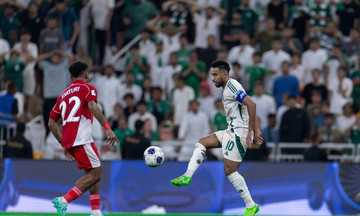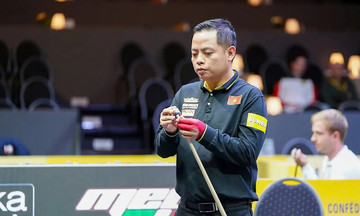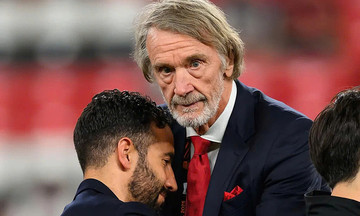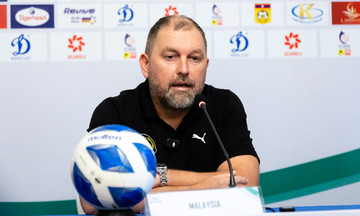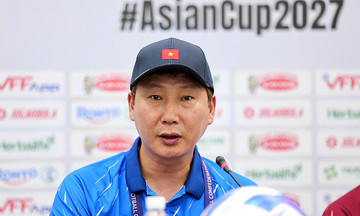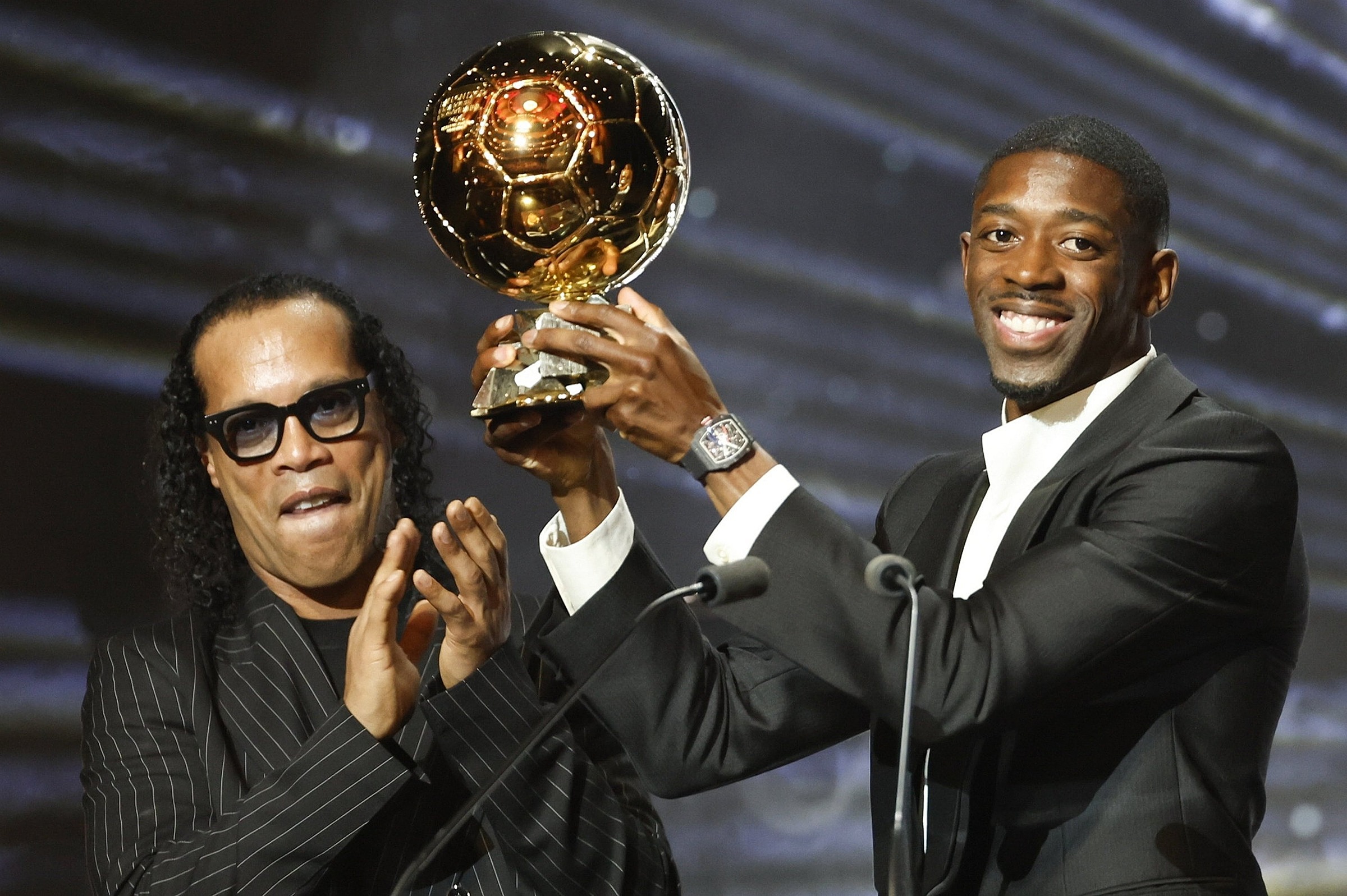 |
Ronaldinho presents the 2025 Ballon d'Or to Dembele at the Chatelet Theater, Paris on 22/9. Photo: *EPA* |
In 1956, when *France Football* first awarded the Ballon d'Or, the three players honored were technical geniuses: Sir Stanley Matthews, Alfredo di Stefano, and Raymond Kopa. Each was a master with a unique style. They were mesmerizing and daring artists who brought chaos to the pitch. These smaller players constantly challenged defenders, dribbling and teasing, sending stadium crowds into a frenzy of joy and admiration.
Back then, the world only glimpsed these football wizards in fleeting moments. There was no internet, no constant live football on television. But even with technological advancements, global football's pervasive coverage, and computer-programmed tactics designed to neutralize talent, the public's fascination with players who can create the unexpected remains.
Beyond Ronaldinho having played for both PSG and Barca, perhaps *France Football* chose him to present the 2025 Ballon d'Or because of the infectious joy in his mesmerizing footwork and the love of football he instilled in children of Dembele and Yamal's age. These two players are also masters of deception in the beautiful game. Calling them wizards wouldn't be an exaggeration. Like Ronaldinho in his prime, Dembele and Yamal use their shoulders, hips, eyes, and, above all, body language to deceive opposing defenses.
When their instincts tell them what to do on the pitch, they simply go for it. The stands hold their breath, anticipating the opportunity they're about to create, before erupting in either groans of disappointment or roars of delight. Regardless of the outcome, these players will try again five minutes later. It's the purest embodiment of the style of play honed in parks and on concrete pitches.
Weeks before receiving the Ballon d'Or, Dembele shared on *Champions Journal*: "My first football memory isn't on a grass pitch, but in a park near my home, where my friends and I would kick a ball against a wall. We played our hearts out, countless games a day, often ending up with bruised and scraped knees, sometimes even bleeding."
20 years ago, when Frank Rijkaard was managing Barca, trying to combine Ronaldinho and Lionel Messi in the same team, he recounted his childhood playing street football in Amsterdam, Netherlands. "It was all intense. Every skill you possessed, the whole team gave their all in survival mode, on hard cobblestone streets, chased by the police when our ball hit a car or an apartment window. Then the two best players from the two strongest teams would face off, one-on-one, me against you, and the winner was 'king'," the former Dutch player recalled.
The football of Rijkaard's childhood is the same style Dembele and Yamal have pursued since they were young. The skills and qualities they learned in parks and on the streets of their hometowns, Evreux and Rocafonda, respectively, weren't lost when they joined professional academies. They continue to showcase these skills before billions of viewers, under the immense financial pressure of this industry.
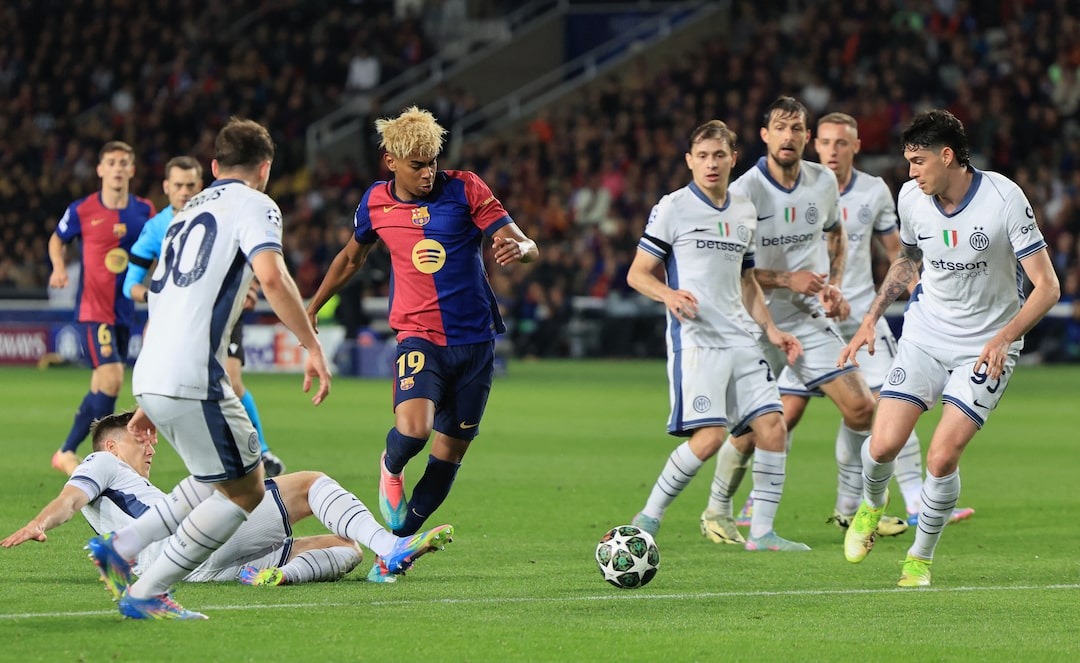 |
Yamal dribbles past Inter's defense in the first leg of the 2024-2025 Champions League semi-final. Photo: *Reuters* |
Football fans are impressed not only by Yamal and Dembele's contributions to their team's 8 collective titles in the past year, but also by how these two superstars amaze everyone in the way every child dreams of when they first start playing football. They're like a mental vitamin B12 shot, like calorie-free cotton candy. But despite their shared risk-taking and entertaining style, their journeys are completely different.
For years, Dembele was considered a player who would "never grow up," full of skill and speed but not ready for pressure, loved by teammates but frustrating coaches and fans – a true "late bloomer."
Yamal, on the other hand, was "born ready," with exceptional football intelligence. Despite being only 16 or 17, he immediately surpassed teammates a decade older. A mind and feet fully equipped with the ambition to redraw the world football map.
In 2015, at 18, Dembele, then at Rennes, went to the Etihad in preparation for a transfer. Patrick Vieira, Man City's youth coach at the time, conducted the interview. It was Dembele's second visit to the English club's complex, but he left disheartened and later joined Dortmund in Germany. Even then, Vieira told Dembele, "You could become one of the best players in our academy."
At the same age as Dembele then, Yamal was already a European and Spanish champion, courted by major clubs since he was 15, scoring the most beautiful goal at Euro 2024 and being honored by UEFA's technical observers with the best goal of the 2024-2025 Champions League season.
Dembele and Yamal had different developmental paths and were perceived differently in their youth. However, they both share a common thread: being trusted and nurtured by Xavi Hernandez at Barca.
When Xavi presented his plan to the Barca board in 11/2021 to take over from the recently dismissed Ronald Koeman, he told the directors at Camp Nou: "I can turn Dembele into one of the best players in the world."
At the time, Dembele had shown talent at Barca, but the lack of faith from some directors led to Xavi's idea being ridiculed. By the time Dembele moved to PSG in the summer of 2023, he absorbed Xavi's earlier advice about the necessary regimen for a professional player like a sponge.
After just two seasons with PSG, Dembele was recognized just as Xavi had promised. From a forward once plagued by injuries, clumsy, immature, disappointing, friendly but somewhat carefree, he became a symbol and driving force of a conquering team.
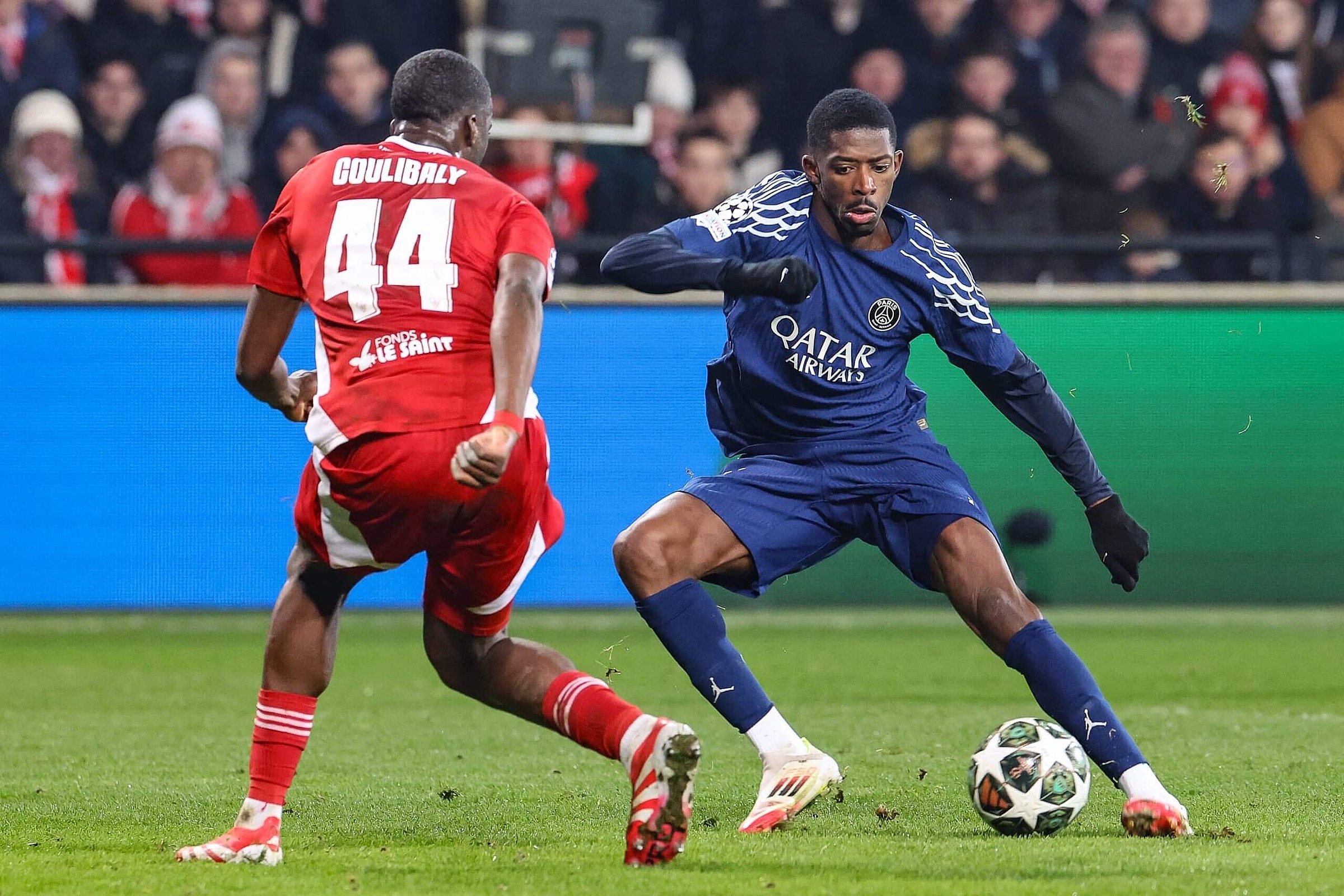 |
Dembele feints past defender Soumaila Coulibaly in PSG's 3-0 win at Brest in the first leg of the Champions League play-off round on 11/2/2025. Photo: *AFP* |
Dembele and Yamal only played together once for Barca. It was Yamal's debut at Camp Nou against Real Betis when the Spanish prodigy was just 15 years, 9 months, and 16 days old. Jordi Cruyff, then Barca's Football Director, recounted that Xavi was so shocked by Yamal's talent and footballing maturity that he wanted to give him his debut months earlier. Xavi became even more anxious when his friend and former teammate, Ivan de la Pena, warned him that before Yamal was represented by Jorge Mendes, Bayern had declared they would do everything to acquire the 15-year-old phenomenon.
Just as his mentor Louis van Gaal had done with him a quarter of a century earlier, Xavi accelerated Yamal's apprenticeship, trusting and guiding him.
Xavi's influence is evident in the success of both Dembele and Yamal. But the ultimate victory belongs to football.
Scientists and analysts will continue to use algorithms and artificial intelligence to help coaches create models that stifle space, time, creativity, and excitement from opponents. But what the public readily embraces and loves are players with dazzling hip shakes, those who "say one thing and do another" against opposing defenders, the risk-takers, the mavericks, those who seek and deliver thrills.
First Ousmane Dembele, second Lamine Yamal, third Vitinha: that's the order of the 2025 Ballon d'Or, like an old order established in 1956. Football is joy, it's audacity, it's for those who lie with their body language and leave their opponents lost, lonely, and disheartened.
Compiled by Hoang Thong




